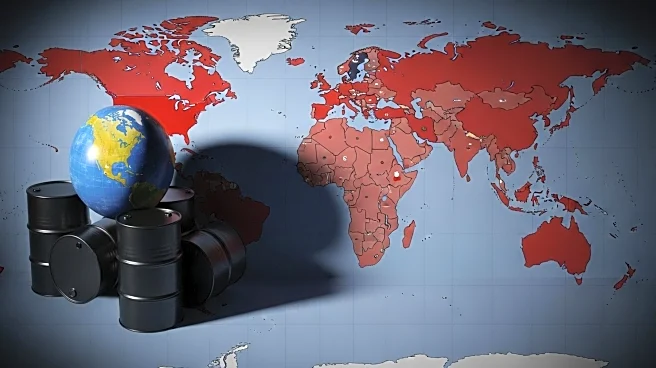What is the story about?
What's Happening?
Recent geopolitical developments in Russia, including Ukrainian drone attacks on oil infrastructure, are causing instability in global oil markets. These attacks have targeted key refineries and fuel depots, disrupting Russia's ability to export petroleum products. As a major exporter of diesel, fuel oil, and kerosene, Russia's challenges are affecting global supply chains and pricing. The situation is compounded by increased geopolitical risks and strong global demand, which could lead to higher oil prices. Despite OPEC+'s efforts to increase production, the market remains volatile due to these external threats.
Why It's Important?
The disruption of Russian oil exports has significant implications for global energy markets. As one of the world's leading oil exporters, any reduction in Russian supply can lead to increased prices and volatility. This situation highlights the vulnerability of global energy infrastructure to geopolitical conflicts and underscores the importance of diversifying energy sources. Countries reliant on Russian oil may face supply shortages, prompting shifts in energy policy and investment in alternative sources. The ongoing tensions also raise concerns about the stability of international trade and economic relations.
What's Next?
The geopolitical situation in Russia is likely to continue influencing global oil markets. Stakeholders, including governments and energy companies, will need to assess the risks and develop strategies to mitigate potential disruptions. This may involve increasing investments in renewable energy or exploring new trade partnerships. Additionally, the international community may seek diplomatic solutions to reduce tensions and stabilize the market. The evolving nature of these geopolitical risks will require ongoing monitoring and adaptation by all parties involved.
















